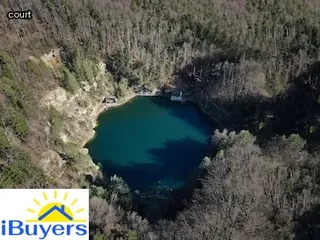Probate is the legal process that deals with the distribution of a deceased person's estate. In Wyoming, this process is overseen by an estate administrator who is responsible for ensuring the deceased's assets are distributed according to their wishes or state law.
The probate process begins when a court issues letters of administration or appointment. These documents provide authority to the administrator to act on behalf of the deceased and carry out their wishes.
The next step involves collecting all of the deceased's assets, which includes locating and assessing any real property, investments, bank accounts, business interests and other estate-related matters. After all of these items have been identified, appraised and valued, debts must be paid off from the estate’s assets before it can be divided among heirs or beneficiaries named in a will.
Before any distributions can be made, however, the court must approve them first. This includes verifying that all creditors are paid in full and that taxes have been settled with local and federal governments.
Once these tasks have been completed, an estate administrator can then distribute remaining funds or property according to instructions provided in a will or state law if no will exists.

In Wyoming, probate is required when the estate of a deceased person is worth more than $100,000 or if there are other assets besides money such as real property, interests in partnerships and corporations, and life insurance policies. Probate is also necessary when someone dies without a will or any other estate planning documents in place.
It's important to note that even if the estate is below the $100,000 threshold, probate may be necessary to transfer legal title of certain types of property such as real estate. The state's laws require that all creditors must be paid before any benefits can be distributed among heirs so it's essential to understand the legal process of probate in order to complete an accurate assessment of debts and liabilities.
Depending on the complexity of the estate and whether a will exists, some estates can be settled within a few months while others may take up to a year or more. Estate administrators should familiarize themselves with Wyoming's probate laws as it pertains to intestacy, wills, executors/personal representatives, creditors' claims, distributions of assets and any applicable taxes associated with each stage of the process.
In Wyoming, the primary source of payment for probate costs is typically the estate itself. The court will determine which costs are necessary and allowable to be paid out of the estate's funds.
Costs like appraisals, document preparation fees, court filing fees and attorney fees may all be taken from the estate. In certain cases, such as when an heir or beneficiary is contesting a will, additional costs may be imposed on the disagreeing party.
If there is not enough money in an estate to cover all probate costs, then personal assets of one or more heirs may be used to make up the difference. Ultimately, however, it is up to a judge to determine who pays for what when it comes to probate costs in Wyoming.

When it comes to estate administration in Wyoming, probate laws can be confusing and complicated. Fortunately, it is possible to avoid the probate process altogether by taking certain steps.
One of the simplest ways to avoid probate is to create a revocable living trust for all assets that are not jointly owned. This type of trust will allow an individual or couple to transfer ownership of their assets without going through the court system and simplifies the process when it comes time for distribution.
Another option is for individuals or couples to add designated beneficiaries on their financial accounts and titles of property such as real estate. Doing this will ensure that ownership automatically passes from one person to another upon death and avoids probate proceedings.
Additionally, many types of life insurance policies allow proceeds to pass directly to a designated beneficiary, which also helps bypass court intervention. Lastly, giving away smaller items during an individual's lifetime can reduce the amount of assets subject to probate at death.
In sum, understanding how Wyoming's estate laws work and taking advantage of these various strategies can help people minimize their estate entering into the probate court system.
Yes, an executor of an estate in Wyoming can be compensated for their service. According to the Wyoming probate laws, the executor is entitled to a reasonable amount of compensation for their services.
The court overseeing the probate procedure will determine the fee and it is generally based on the size of the estate and complexity of tasks involved. In addition, according to Wyoming law, when determining compensation, factors such as time spent, skill required and difficulty of duties must be taken into consideration.
Additionally, if there is a will in place that states how much compensation should be provided to the executor then that amount must also be followed. It is important to note that any payment made to an executor must come from funds within the estate.
Lastly, when filing for final distribution it is essential that all fees paid out by an executor are reported accurately in order to avoid legal action or further complications down the line.

The role of an executor in Wyoming is a critical one, as they are responsible for administering the estate of a deceased person and ensuring that all assets are distributed according to the wishes of the deceased. As such, it is important to understand how much an executor will be compensated for their work.
In Wyoming, an executor typically receives statutory fees based on the value of the estate being administered. These fees can range from 4% to 8%, with different rates depending on the size of the estate.
Additionally, other expenses associated with probate may be reimbursed by the estate, including attorney's fees, court costs, and appraisal fees. It is also possible to receive additional compensation if the estate has significant assets or if certain services are provided beyond those required by law.
To ensure that all parties involved are aware of their rights and responsibilities when it comes to compensation, it is important to consult with an experienced estate planning attorney before agreeing to serve as an executor in Wyoming.
In Wyoming, the length of time probate takes can vary widely depending on the size and complexity of the estate being administered. The average time is often around six to eight months, but this could be shorter or longer based on any legal issues that may arise.
When beginning the process, the estate administrator must first identify all assets and liabilities, as well as determine who should receive assets from the estate. This includes filing all relevant documents with both local and state governments in order to obtain a Certificate of Discharge before closing out the estate.
Once all debts are settled, it is important to notify creditors and heirs that they will receive their share according to Wyoming law. Throughout this process, it is important for an estate administrator to keep accurate records and ensure that documents are filed correctly in order to minimize delays in closing out the probate.

In Wyoming, most estates must go through the probate process. This includes any estate where the decedent left any real property or tangible personal property, such as cars, boats, jewelry, or other items of value.
Estates where the decedent died with no will and estates where the decedent left a will also need to go through probate. Estates which contain only intangible assets (such as stocks or bank accounts) may be able to avoid probate if they are worth less than $200,000 and are not jointly owned with another person.
In addition, any estate that is worth more than $200,000 that is not jointly owned by another person also requires probate regardless of its type. It is important for anyone considering becoming an estate administrator in Wyoming to understand all of these requirements before beginning the process.
In Wyoming, all wills must be proved up in order to be valid. The probate process is the legal process of validating and administering a will, ensuring that all debts are paid, assets are distributed according to the deceased's wishes and that any inheritance taxes due are collected.
In Wyoming, probate laws require that an estate administrator be appointed who is responsible for managing the estate. The estate administrator will need to file the will with the court and notify all creditors and beneficiaries of the estate.
During this process, a variety of documents may need to be filed with the court including an inventory of assets and liabilities, a list of beneficiaries and any other relevant paperwork. It is important for anyone looking to become an estate administrator in Wyoming to familiarize themselves with local probate laws so they can ensure they are carrying out their duties in accordance with state regulations.

Becoming an estate administrator in Wyoming requires a thorough knowledge of the state's probate laws. Settling an estate in Wyoming can be a lengthy and complicated process, but with the right guidance, it can be made much simpler.
Knowing the necessary steps to take when settling an estate can help ensure that the process is completed properly and efficiently. The first step is to determine if probate is necessary; this may require consulting a lawyer or other legal professional who can advise on whether the estate qualifies for simplified procedures.
Once it has been determined that probate is necessary, all assets must be identified and valued before being passed on to beneficiaries. Additionally, all debts must also be paid off from the estate before any remaining funds are distributed to heirs.
Taxes may also need to be paid depending on the nature of the asset holdings and how they were inherited. Lastly, an executor or administrator will need to be appointed to oversee these matters throughout the entirety of the probate process.
Following these steps carefully will make settling an estate in Wyoming much easier for everyone involved.
In Wyoming, the time limit for filing probate documents after a death is determined by statute. Generally speaking, the estate representative has up to three years from the date of death to file all relevant documents with the court.
However, there are certain exceptions that may require documents to be filed sooner, so it is important for an estate administrator to be aware of these guidelines and seek legal advice if there is any doubt about when probate paperwork should be filed. The exact timeline for filing depends on several factors, including whether the deceased had a will or not and if they left behind any assets or debts.
Additionally, if the estate is complicated or contested in any way, it may take longer to settle than usual due to additional court proceedings and paperwork.

Appearing before the probate court in Wyoming is an integral part of becoming an estate administrator. Understanding the process and related laws can be complex, but the steps are simple.
Before appearing in court, an individual must first file a petition with the clerk of the district court in their county. The petition should include a death certificate, as well as details about the deceased and their assets.
Once accepted, a hearing date will be set and notice will be sent to any interested parties. At the hearing, an estate administrator may request certain rights or privileges depending on their role and responsibilities.
In addition to providing evidence of legal authority to act on behalf of the deceased's estate, the estate administrator may need to provide additional documents such as appraisals or bills for payment. After all evidence has been reviewed by the court, a decision will be made regarding who has authority over the deceased's estate.
Being aware of probate laws in Wyoming is essential for becoming an effective estate administrator and appearing successfully in front of a probate court.
The Probate Code of Wyoming regulates the administration of estates in the state, and understanding this vital piece of legislation is essential for anyone who wishes to become an estate administrator. The Probate Code sets out the rules for probating a will, including such matters as determining heirs and distributing assets.
It also addresses issues related to guardianship and conservatorship, how creditors must be notified, and other important matters involved in estate administration. Knowing the specific procedures that are outlined by the Probate Code is necessary not only for properly administering an estate but also for avoiding any potential legal pitfalls that can arise during the process.
Additionally, it’s important to understand the timeline and filing requirements associated with probating an estate in Wyoming. Estate administrators who are knowledgeable about the Probate Code’s rules are more likely to successfully navigate their way through the probate process and ensure that all parties involved in an estate receive what they are due under law.

In Wyoming, it is important to know who can be an executor of your estate when you pass away. The most important factor in determining who can act as your executor is that the person must be at least 18 years old and a legal resident of the state.
If you are married, then your spouse is typically the first choice to serve as the executor of your estate. If there is no surviving spouse, then any adult relative or friend can be appointed by the court to serve as executor.
In addition, if you do not have a will or if no one has been named in the will, then someone else can be selected by the court to administer your estate. It is important to note that even if someone has been assigned as an executor in a will, they still need to meet all of these requirements before they can assume their role.
Therefore, it is essential that you thoroughly research all of Wyoming's probate laws prior to making any decisions regarding your estate plans.
Serving as an estate administrator in Wyoming requires knowledge of the probate laws in the state. In order to become an executor, individuals must meet certain basic requirements.
First and foremost, one must be at least eighteen years of age and a resident of Wyoming. Beyond this, it is necessary for all prospective executors to have no criminal record, be able to read and write English, and complete any applicable forms or paperwork that may be required.
Additionally, it is important to understand relevant tax laws and regulations. It is also beneficial for one to possess strong organizational skills in order to keep track of assets and debts associated with the estate.
Finally, the prospective executor should have the mental capacity to handle financial matters related to administering an estate efficiently. Therefore, before taking on this responsibility, it is important that individuals are well versed in these areas so they can successfully fulfill their duties as an estate administrator in Wyoming.

Serving as an executor in Wyoming can be a daunting task. Corporations, such as banks or trust companies, are allowed to act as executors for estates in the Equality State.
In order to do so, corporate executors must follow the probate laws established by Wyoming. Requirements include filing a petition for probate with the court and providing notice to all interested parties of the estate administration.
Corporate executors must also provide a detailed inventory of all assets and debts of the estate, prepare appropriate tax returns and distribute any remaining assets according to Wyoming law. It is important that corporate executors understand these rules before assuming their role as estate administrators in Wyoming.
Additionally, they should seek legal advice if necessary to ensure that all requirements are met and that the estate is administered properly.
Serving as an executor of an estate in Wyoming is a serious responsibility and requires knowledge of the state’s probate laws. Out-of-state individuals may not be aware of important restrictions when attempting to fulfill this role.
Though many states allow out-of-state parties to serve as executors, Wyoming does not allow this unless the individual has a license from the state's Secretary of State. Furthermore, even if the out-of-state executor has a license from another state, they still must obtain a license from the Secretary of State in order to serve as an executor for estates located in Wyoming.
This is just one of several restrictions that must be met when an out-of-state individual wishes to serve as an executor in Wyoming; additional requirements include filing paperwork with the court and obtaining approval prior to serving as the administrator on any estate within the state.

When it comes to settling an estate in Wyoming, it is important to understand the differences between the roles of an administrator and an executor. Generally, an administrator is appointed by the court to handle the affairs of a deceased person’s estate when there is no will or if a named executor has died or is unable to serve.
An executor, however, is appointed by the deceased person in his/her will and has specific duties outlined in that document. In Wyoming, both administrators and executors must comply with state probate laws and be approved by a court.
Administrators are responsible for filing the state-required forms with the county clerk's office, handling any debts owed by the deceased person, collecting assets from financial institutions or other sources, distributing assets according to state law, notifying creditors and heirs of their rights under state law, paying taxes due on behalf of the estate as well as any other legal requirements related to settling an estate. Executors have similar responsibilities as administrators but also have additional tasks such as locating heirs named in a will and making sure they receive their share of inheritance.
They may also need to obtain court orders for payment or transfer of property if required by the terms of a will. It is important for estate administrators and executors alike to understand their obligations under Wyoming probate laws before taking on these roles.
Becoming an administrator of an estate in Wyoming can be a complex process. It's important to understand the probate laws in order to properly navigate the necessary steps.
The first step is to petition the court to become the administrator of a deceased person's estate. This requires filing a formal request with the District Court in the county where the deceased resided at the time of death.
After filing, if no other person objects, you will need to take an oath of office and post a bond as required by law. Once approved, you will have access to all records pertaining to the estate and be responsible for managing its assets.
Next, you'll need to identify and inventory all property belonging to the decedent, pay any outstanding debts and taxes from their estate, then distribute any remaining assets according to state law or according to instructions in their will (if applicable). This process can take several weeks or months depending on the complexity of each situation, so it's important that executors are prepared for a long-term commitment when taking on this responsibility.

When selecting an experienced attorney to handle estate matters in Wyoming, there are a few common questions that you should ask before making your decision. First, enquire about the attorney’s experience with probate laws in Wyoming and how long they have been practicing in this area of law.
It is also important to ask what kind of assistance they can provide throughout the entire process of becoming an estate administrator, such as helping to manage assets and liabilities or ensure that taxes are paid on time. Additionally, inquire about their fee structure and any other related costs that may be associated with their services.
Finally, it is also worth asking whether they offer any resources outside of legal advice that could be beneficial for the estate administrator, such as financial guidance or information about local organizations specializing in probate law. Asking these questions can help you find an experienced attorney who can provide reliable advice during the process of becoming an estate administrator in Wyoming.
Becoming an executor of an estate in Wyoming requires that you understand the probate laws for the state. To be appointed as an executor, you must meet certain qualifications, such as being over 18 years of age and having a valid Wyoming driver's license or ID card.
You'll also need to file paperwork in the court of probate and provide information about the decedent's assets, debts, and heirs. Once the court approves your appointment, you'll be responsible for managing the deceased person's financial affairs and distributing their assets according to their wishes.
This includes collecting any outstanding debts owed to the estate and filing tax returns on behalf of the decedent. It's important to note that even if you're appointed as executor by the court, it doesn't automatically make you legally responsible for any debts or taxes owed by the estate.
You should always consult with a qualified lawyer before taking on any legal responsibilities associated with becoming an estate administrator in Wyoming.

In Wyoming, an estate administrator is typically paid a commission based on the total value of the estate. The exact amount of commission may vary depending on the terms of the will and the state laws governing probate.
Generally, courts determine executor fees as a percentage ranging from 1-5%, with higher percentages being awarded to more complex estates. In addition to commissions, executors in Wyoming may receive additional compensation for costs associated with administering an estate such as attorney's fees, court filing fees, appraisal fees, and other miscellaneous expenses.
The executor's fee must be approved by the court before it is paid. Before taking on this responsibility, potential executors should consider all aspects of managing an estate in Wyoming to ensure they are comfortable with their obligations and are fully informed about relevant probate laws.
In Wyoming, the threshold for an estate to qualify for probate is $100,000. This means that if an individual dies leaving behind a total estate worth more than $100,000, the estate must go through the probate process in order to be legally transferred.
The probate process involves many steps and can take several months or even years to complete. It is important to understand all of the probate laws in Wyoming before attempting to become an estate administrator in the state.
Estate administrators are responsible for managing the legal and financial aspects of an estate until it is settled. They must also ensure that all bills and taxes are paid on time and that all beneficiaries receive their rightful share of funds from the estate at the conclusion of the probate process.
Yes, Wyoming does require probate. In order to obtain the legal authority to manage an estate, an individual must obtain a grant of probate from the local court in Wyoming.
Probate is a legal process that involves verifying and settling a deceased person's last wishes and distributing their assets according to their wishes as outlined in a will or trust. The process of obtaining probate can be complex and time-consuming depending on the size of the estate.
To become an Estate Administrator in Wyoming, individuals must understand how to apply for probate and comply with all state laws governing estates. Additionally, they should familiarize themselves with the specific requirements for administering an estate in Wyoming such as filing paperwork, managing assets, paying taxes, and distributing assets according to the decedent's wishes.
With knowledge of these processes, individuals can become well-versed in all aspects of becoming an Estate Administrator in Wyoming and confidently assist families through the probate process.